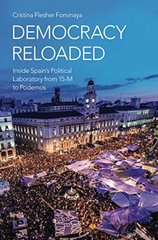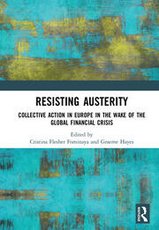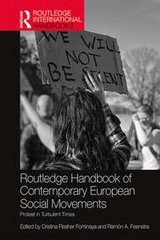
In Democracy Reloaded, Cristina Flesher Fominaya tells the story of one of the most influential social movements of recent times: Spain's "Indignados" or "15-M" movement that took to the streets of Spain on May 15, 2011 with the rallying cry "Real Democracy Now! We are not commodities in the hands of bankers and politicians!" Based on access to key participants in the 15-M movement and Podemos and extensive participant observation, Flesher Fominaya tells a provocative and original story of this remarkable movement, its emergence, evolution, and impact. In so doing, she argues that in times of global economic and democratic crisis, movements organized around autonomous network logics can build and sustain strong movements in the absence of formal organizations, strong professionalized leadership, and the ability to attract external resources. Further, she challenges explanations for success that rest on the mobilizing power of social media. Through in-depth analysis of the month long occupation of Madrid's Puerta del Sol, and subsequent 15-M mobilization, Democracy Reloaded shows how the experience of the protest camp revitalized pre-existing networks, forged bonds of solidarity, and gave birth to a new movement that went on to influence public debate and the political agenda, in Spain and beyond.

Following the subprime lending crisis and the financial market crash of 2008-9, governments throughout Europe implemented a series of debt reduction measures collectively known as austerity. Across the continent, citizens and social movements mobilized dramatically against these measures, calling strikes, occupying public squares, and developing new forms of political action. These movements challenged the political and economic elite consensus that there was no alternative to cutting spending, and protecting the financial industry at the expense of the public sector; they also challenged the political systems that gave rise to these measures and assumptions, demanding democratic renewal, and imagining new modes of citizenship and political participation. In order to better understand this wave of protest – its common themes, its local contexts, its ideas and its actions – this collection brings together leading scholars in the field to provide a series of theoretically grounded, empirically rich analyses of Europe's anti-austerity mobilizations.

European social movements have become increasingly visible in recent years, generating intense public debates. From anti-austerity and pro-democracy movements to right-wing nationalist movements, these movements expose core conflicts around European democracy, identity, politics and society. The Routledge Handbook of Contemporary European Social Movements offers a comprehensive interdisciplinary overview of the analysis of European social movements, helping to orient scholars and students navigating a rapidly evolving field while developing a new agenda for research in the area. The book is divided into eight sections: Visions of Europe; Contemporary models of democracy; Historical evolution of major European movements; Feminism and sexualities; Movement diffusion within and beyond Europe; Anti-austerity movements; Technopolitical and media movements; and Movements, parties and movement-parties. Key theories and empirical trajectories of core movements, their central issues, debates and impacts are covered, with a focus on how these have influenced and been influenced by their European context. Democracy, and how social movements understand it, renew it, or undermine it, forms a core thread that runs through the book. Written in a clear and direct style, the Handbook provides a key resource for students and scholars hoping to understand the key debates and innovations unfolding in the heart of European social movements and how these affect broader debates on such areas as democracy, human rights, the right to the city, feminism, neoliberalism, nationalism, migration and European values, identity and politics. Extensive references and sources will direct readers to areas of further study.